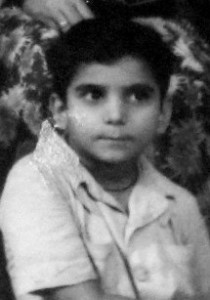
How life began:
In a vernacular co-ed Gujarati medium school consisting of dedicated teachers and a brilliant vice principal. Few valuable lessons learnt:
- Equality among both the sexes and in fact girls can also excel scholastically and academically, sometimes even better than boys.
- Avoid jealousy towards toppers and instead learn to be friends with them. Extract 'valuable pearls' from their lives.
- Pick up extracurricular activities close to your heart. I chose and enjoyed being with my father, then a renowned general practitioner. After school hours I watched how he talked and treated his patients. At a tender age of eight years I knew how to clean and dress a wound. Something kept telling me to take up medicine as a career.
Growing up:
Premed: College life was challenging and one needed to be focused as at every step of the way there was an intense competition. Everyone was trying to be ahead of others. This instilled in me a deep sense of spirited learning with dedication towards premed subjects. These made my entry easy in to the med school.
Med school: Stayed in a hostel away from home comforts and opted for 'how to be self sufficient and get organized in a cogent orderly manner.' Developed courage to ask questions to sort out innumerable medical quizzes and queries. Since dedication to the medicine was total, there was no time or inclination for tobacco, alcohol, drugs or sexual abuses and did not waste a single hour playing cards or gambling.
Post graduate study: After obtaining M.B.,B.S. degree, joined M.D. course in Internal Medicine at the same The Grant medical College attached to the largest government 1000 bedded J.J.Hospital. What I saw in varieties of diseases in 3 years, I never saw them through out my entire life. Numbers of top rank students and gold medalists grew further. They were busy showing off their new found knowledge making others feel lowly. My father encouraged me to be regular in my studies, learn to talk to the point and have a good command over English. To improve delivery of thought processes and presentation he made me join two top public speaking classes, personality development and advance English speaking classes. All these worked like a magic and I was the only post graduate candidate to pass at first attempt in our final M.D. exam in the year 1970. My original researched thesis was highly appreciated and later on became a chapter in the text book of Neurology.
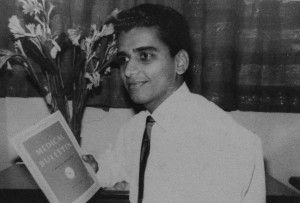
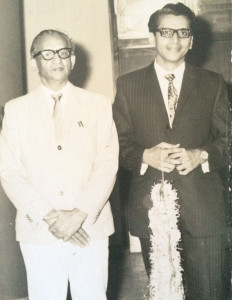
What it takes:
A doctor can never be 'complete' unless he has time and inclination to understand mind of a patient. If I had not done house post in the department of Psychiatry, I would have never understood sufferings that one undergoes be it with the self, family, friends, colleagues or society. Here, one is unable to cope up with burdens of expectations and inter personal mindset disturbances leading to varieties of medical disorders including Psychosomatic afflictions.
To be successful in the medical profession, besides obtaining thorough knowledge, self confidence and self belief are mandatory. I still remember my very first interview in England. Out of nearly 80 candidates, only seven were short listed for the interview. It was a prestigious 'Cardiology Registrar' post at the Wessex Cardiac and Thoracic Center.I was seventh on the list and all first six were English doctors with post graduate degree of MRCP. They completely ignored me in the waiting room. When I approached first four after their interview, I was coldly and blatantly told to wait for my turn, if at all it comes! I don't know why but I was depressed and felt like taking the first available Air India flight back to Mumbai. Suddenly, a gentle heavy set woman named Vera entered the room and with a smile offered me tea, sandwich and a pastry. This little humanitarian gesture completely lit up my spirits and instantly I decided to be ready for my 'The Best Presentation' for the interview.
When my turn came, I just couldn't believe the elegance and the grandeur of the conference room. There were 20 executives seated on the either sides of a well polished oval table, perhaps made of mahogany wood. At one end was seated the chief of Cardiology and at the other end I was offered a seat exactly opposite him. My interview, instead of regular 10 minutes, stretched to 35 minutes and I was asked to please wait with the others in the waiting room. I felt good and actually triumphant. In about 20 minutes time, the chief secretary entered the room and announced 'Dr.Bharat B. Vibhakar you are wanted back by the committee. I got the job. I was told that it was the first time in the history of this prestigious institution that an Asian without any British qualifications and experience got such a high level job.
Experience:
In England:
- Learned in the great details the most fundamental aspects of history and physical of a patient.
- A lot of semi emergency and emergency patients kept me on my toes most times.
- Taking up newborn blue babies for emergency heart catheterization and offering treatment right on the table was mind blowing.
- Adult heart catheterization for both the valvular and coronary artery disease patients was a regular feature and a surgical team was available at instance's notice.
In the U.S.A.:
- Worked as a third year fellow in Cardiology at The Case Western Reserve University, Cleveland, Ohio.
- More emphasis was laid on thorough and advanced work up to arrive at a diagnosis than history and physical diagnosis with a regular work up.
- Received very elaborate and extensive technological exposure in all the branches Cardiology, Hypertension and Interventional procedures.
- At the end of 4 years tenure, settled down in the private practice of Cardiology in Providence, Rhode Island. Got attached to two very busy hospitals as a Cardiologist.
- Enjoyed over twelve years of most successful private practice and the last three years were simultaneously ventured in the practice of Acute Emergency room medicine. I had 32 people on my pay roll including doctors.
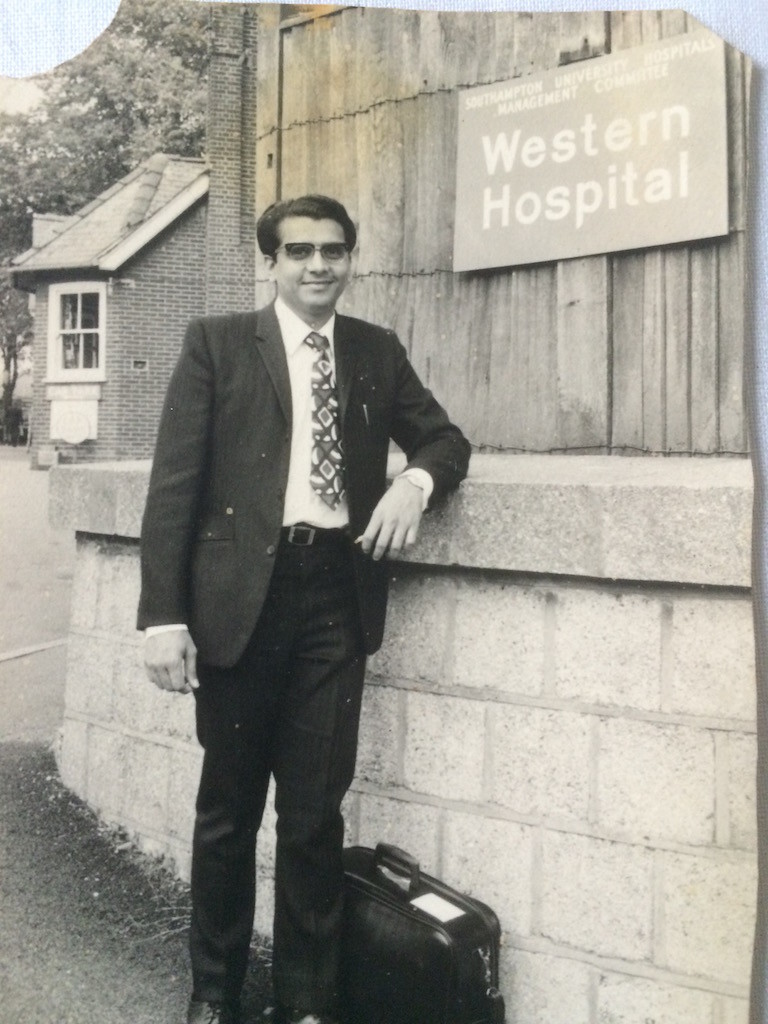
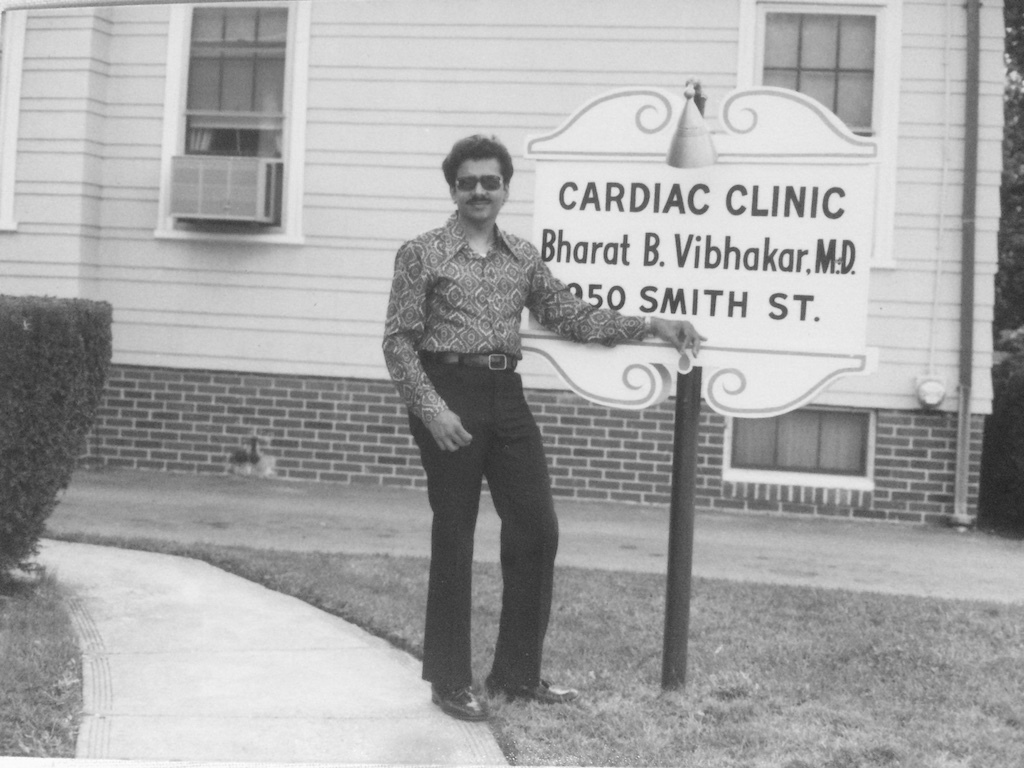
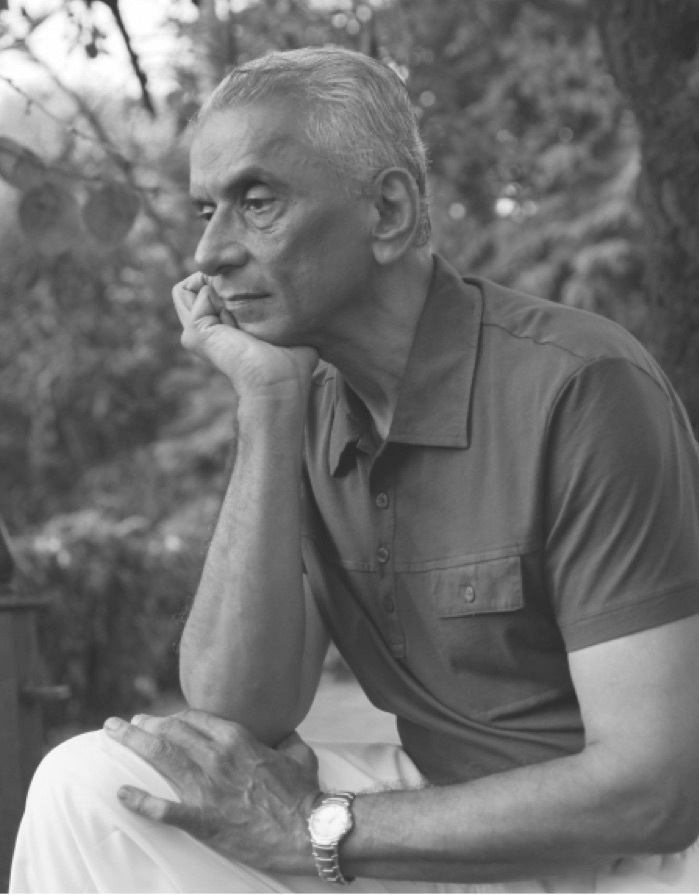
Return journey:
- By the time I reached the age of 45 years, I was well established not only in my profession but in my family life as well. My wife was doing well as a qualified Physiotherapist in a well equipped and established hospital. My two sons were studying in the private school
- My father's sudden demise back home created an intense urge to return back to the roots. Something kept telling me to wind up in the U.S.A. and go back.
- I wanted my wife and children to see life as existed in Mumbai and decide for themselves whether to leave the U.S.A. or not? Six weeks of stay gave us brief exposure to the customs,trends, routine and ways of working conditions.
- Our priority was to have our own home and not be burden on the family.
- It took another 3 years to wind up practice in the U.S.A. and find a nice apartment in Mumbai. In the meantime children enjoyed learning ABC of two local Indian languages Gujarati and Hindi.
- It was year 1989 we all finally came back to Mumbai for permanent settlement.
Commitment:
There were lots of initial hiccups. it was tough to settle and reestablish our identities. I did not allow frustrations to over power us and cow us down. We all fought bravely to succeed.
Slowly the dust started to settle down and with the help of family and friends, our resolution to 'hang in there' worked.

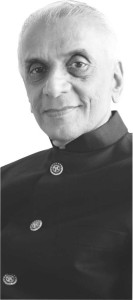
Accomplishment:
- I worked out of my father's old clinic and couple of hospitals to mainly carry on with lots of charity work.
- My wife took up the challenge to upgrade and modernize the run down and dilapidated Physiotherapy department of a local hospital.
- Children got admission to English medium school.
In about a year's time we were able to upgrade our new apartment and moved in permanently from parent's home. Luckily we found two very good domestic help to manage the household. - Still everything was not okay. Something was amiss. One day accidentally, I was introduced to Yoga and it's various ways to living. These completely transformed my thinking, lifestyle and paved way to holistic living.
- My interest in preventive cardiology, behavioral science and life style changes grew further and learned more about it by returning back to the U.S.A. from the year 2000-2002.
Current:
- Subsequent to my return from the U.S.A. in 2002, I gave up running around and hospital connections. Just preached and practiced Yoga way of life leading to life style changes. In turn it helped people to control and correct many life style diseases. There was more of a balance between mindset and body. Peace prevailed.
- I got myself certified as a Yoga instructor and missed no opportunity to add it to lifestyle changes.
- One day I was in a book store glancing through health books. Somehow I was not satisfied with a single book which will comprehensively discuss life, Yoga and health for beginners. Instantly I decided to express my feelings, thoughts and experience as a doctor in writings. I started to jot down my views paragraph by paragraph and it took me ten years to complete the book. I titled it 'Yoga & U in your daily life.'
- I also subtitled it 'a cardiologist's journey through yoga land.' I have supplemented the book with an audio-visual presentation in the form of a short 30 minute DVD presenting 'Art of Relaxation with emphasis on breathing technique.'
- The mindset problems created somatic pains in various muscle groups. Since I believed in 5000 years old Chinese medicine of Acupuncture, I took opportunity to learn it and got myself certified as Acupuncturist.

